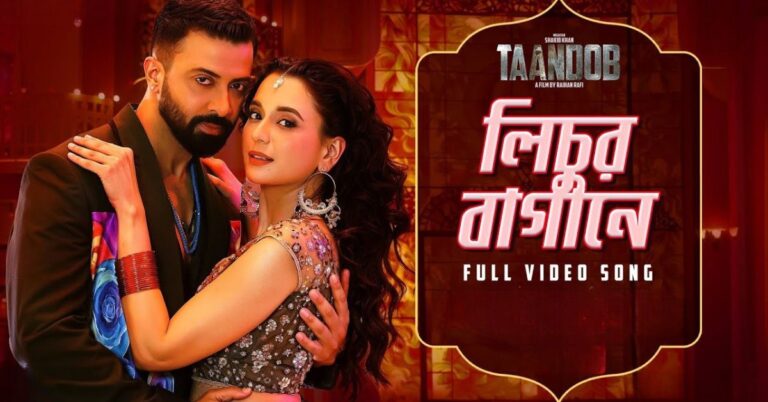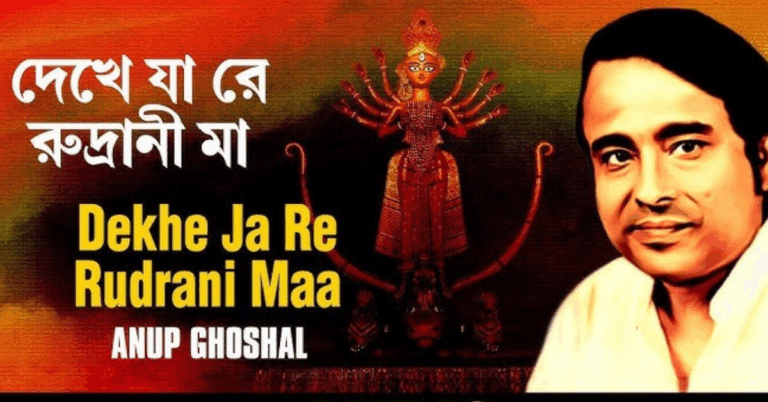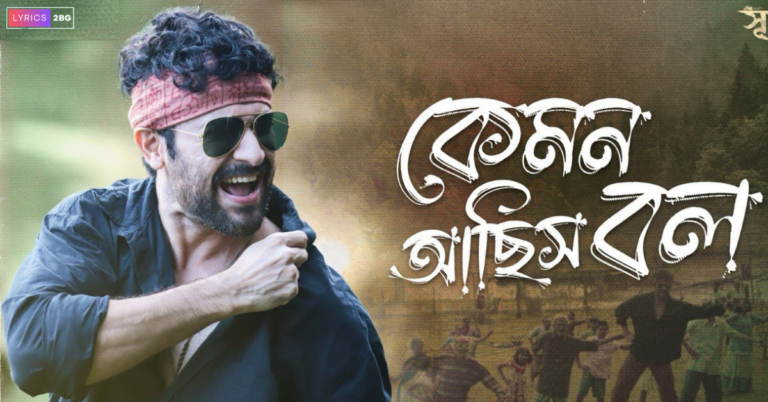Agunkheko Lyrics | আগুনখেকো | Rupam Islam | Anupam Roy
Agunkheko Lyrics
ধূসর দিনযাপন
রোজ রাতে জালমাতের অন্ধকার
নিজের তাগিদেই
ঘর ছেড়ে বেরোলাম আবার
বেরঙিন দিনযাপন
রোজ রাতে জালমাতের অন্ধকার
নিজের তাগিদেই
ঘর ছেড়ে বেরোলাম আবার
আমি রাজি ফের ঝুঁকি নিতে হলে নেবো তা
দেখি কে থামায়, কোন মানুষ না দেবতা? (২)
পিছু ডাকে সারা দেবো না,
থামব না আর এগিয়ে যাবো
পায়ে ধুলো হোক সব বিপদ
যুদ্ধেই ঠিক শান্তি পাব,
নিয়েছিলাম সেই শপথ
হয়ে আগুন খেকো দেখো,
এ জীবন আসছি ফেরত।
ঘর ভেসে যায় যাক,
আমায় এই দান খেলতেই হবে
দাঁড়িপাল্লাতে
নেয়ের হিসেব মিলতেই হবে (২)
আমি রাজি ফের ঝুঁকি নিতে হলে নেবো তা
দেখি কে থামায়, কোন মানুষ না দেবতা? (২)
পিছু ডাকে সারা দেবো না,
থামব না আর এগিয়ে যাবো
পায়ে ধুলো হোক সব বিপদ
যুদ্ধেই ঠিক শান্তি পাব,
নিয়েছিলাম সেই শপথ
হয়ে আগুন খেকো দেখো,
এ জীবন আসছি ফেরত..
আসছি ফেরত, আসছি ফেরত
আসছি ফেরত, আসছি ফেরত।
Meaning of Agunkheko Lyrics
Agunkheko lyrics conveys a powerful message of self-assertion and resilience. It speaks of the speaker’s readiness to confront challenges and uncertainties. The “ধূসর দিনযাপন” or “dusor dinoyapon” signifies the experience of enduring difficult times, particularly during the dark and uncertain nights. However, the speaker is determined to face these adversities with their own resolve and determination.
Agunkheko lyrics repetition lines “ঘর ছেড়ে বেরোলাম আবার” and “এ জীবন আসছি ফেরত” suggests a recurring theme of leaving and returning. It could represent the cyclical nature of life’s challenges and the speaker’s willingness to face them repeatedly. The speaker acknowledges that if they want to take risks and face adversity again, they’ll accept that challenge. This reflects a sense of agency and a refusal to be deterred by obstacles.
The lines “থামব না আর এগিয়ে যাবো” and “পায়ে ধুলো হোক সব বিপদ” underline the speaker’s determination to move forward, no matter what hurdles come their way. This determination is further emphasized by the line “নিয়েছিলাম সেই শপথ” or “I had taken that oath.” The speaker seems to have made a commitment to face life’s challenges head-on, even if it means going through difficult or fiery situations.

The mention of “দাঁড়িপাল্লাতে” implies a return to one’s roots, which could symbolize coming back to one’s true self or origins. This return is seen as an essential part of their journey. The lines “কোন মানুষ না দেবতা” suggest a sense of self-reliance and an acknowledgement that no one else will come to their aid. The speaker is prepared to take control of their own destiny. In the chorus, the repetition of “আসছি ফেরত” or “I’m coming back” signifies a determination to return and face challenges, emphasizing the cyclical nature of life’s difficulties and the speaker’s unwavering spirit.
Overall, Agunkheko lyrics conveys a message of inner strength, resilience, and the readiness to confront life’s trials head-on. It emphasizes the importance of self-determination and the willingness to return and face adversities with unwavering resolve. The imagery used in the lyrics creates a sense of determination and persistence in the face of darkness and uncertainty, making it an inspiring and motivational song.
About the Author of the Song

Agunkheko lyrics is sung by Rupam Islam. Agunkheko song is from by the Dawshom Awbotaar movie directed by Srijit Mukherji and produced by Shree Venkatesh Films and Jio Studios. Agunkheko lyrics is written and composed by Anupam Roy. This song was released by SVF on 15 Oct 2023. It is a prequel to Mukherji’s previous films, Baishe Srabon, Vinci Da and Dwitiyo Purush and the fourth film in Bengali cinema’s first Cop Universe. The film was released on the occasion of Durga Puja in 19 October 2023.
Song Name: Agunkheko
Vocals: Rupam Islam
Lyrics & Music: Anupam Roy
Guitar, Bass, Arrangement & Programming: John Paul
Backing Vocals: Anupam Roy
Vocals Recorded By: Prosenjit “Pom” at Working Class Zero
Mixed & Mastered By: Shomi Chatterjee







